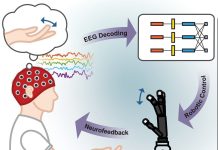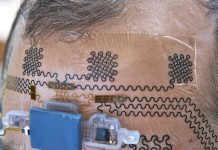
In a new study, researchers have developed a potential new tool to help clinicians detect hidden signs of autism in adults.
The research was conducted by a team from Cardiff University, King’s College London and the University of Bath.
Autism is usually diagnosed in childhood but a growing number of adults are being diagnosed with the condition, even in mid-to-late adulthood.
Many adults develop compensatory psychological strategies to hide their symptoms from clinicians, employers and even their own families.
These strategies make the developmental condition much harder to diagnose and “performing” to fit into society can place a huge mental strain on the autistic person.
In the study, the team devised the first potential tool to help detect psychological strategies that disguise signs of autism.
They outlined a checklist of 31 compensatory strategies that doctors, psychiatrists and psychologists could look for or ask their clients about.
Using the checklist, the researchers summed up compensatory strategies in 117 adults (58 with autism, 59 without autism) to create numerical compensation scores.
They found that participants with an autism diagnosis or those self-reporting higher autistic traits (for example difficulties in reading other people’s minds) had higher compensation scores.
Individuals would score 1 (presence of strategy) or 0 (absence of strategy) on each item on the checklist:
Predict, plan out and rehearse conversations before they happen, out loud or in your head
Mimic phrases, gestures, facial expressions, tone of voice picked up from other people and/or TV/film/book characters
Rely on props (e.g., dog, children, interesting object) to structure and guide the conversation
Make appropriate eye contact, even if it is not useful for communication and/or is aversive OR avoid eye contact but give the impression of social interest (e.g., look at the bridge of the nose, stand at a 90° angle to interaction partner).
The team says the checklist could offer the first step for clinicians to help measure compensatory strategies during autism assessments.
Ultimately, this could mean that autistic people receive a more accurate and timely diagnosis.
The lead author of the study is Dr. Lucy Livingston.
The study is published in Molecular Autism.
Copyright © 2019 Knowridge Science Report. All rights reserved.



